Losing Weight with Nutritional Therapy: It’s Easier Than You Think

Weight loss is one of the most contentious and hotly debated topics in the field of health and nutrition. From Keto to Vegan to Fasting: what the heck is the best thing to do when you want to lose weight?
In this article, I am going to explore the key theories of obesity and overweight and share my top 5 tips to help you lose weight with nutritional therapy. Let’s dive in.
Every week, a new TV show teaches us about the best ways to lose weight and be healthy. One day it’s intermittent fasting and the next it’s keto! Arghh!
Today, overweight and obesity are major public health concerns with obesity costing the NHS £4.2 billion per year alone (1). By 2050, this figure will increase to £10 billion (2).
This does not include weight associated conditions such as premature death, type 2 diabetes, heart disease, cancer, liver and respiratory disease (3).
After working in the NHS, you realise overweight affects everyone, especially our families.
At the national level it affects us all, because health systems are overburdened ‘treating’ lifestyle related conditions instead of focussing on what it was designed for.

Today £16 billion (20% of the annual health budget) is spent on lifestyle related disease such as diabetes, heart disease and alcohol (4).
And that’s a very conservative figure because it doesn’t take into account the conditions caused indirectly by lifestyle and environment such as stroke, IBD and arthritis.
But enough ranting, let’s talk about the causes of overweight and obesity.
The Causes of Overweight
If you beat yourself up because you can’t lose weight take a look at this:
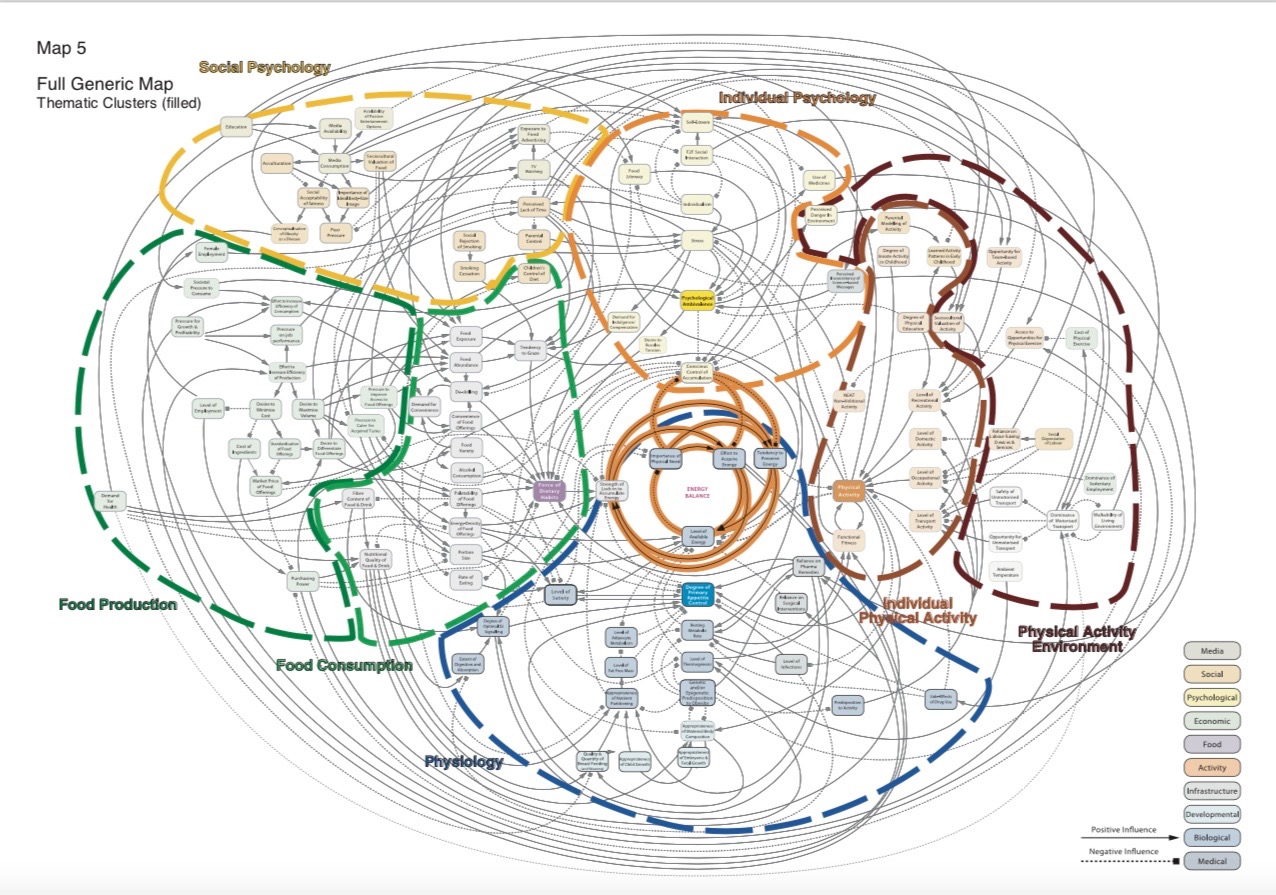
In 2007, the foresight report set out to advise the UK government on how to combat the rise in obesity. Consequently, they devised what they called ‘the obesity systems map’, which illustrates all the factors that contribute to obesity.
As you can see, it’s very difficult to read because it’s so large with over 100 different variables ranging from food production to psychology to physical activity.
So as you can see, in reality, weight loss is vastly complex and not as simple as dieting and exercise.
If that were true, there would only be a handful of diet books.
So DON’T. BEAT. YOURSELF. UP.
The leading theories of Obesity and Overweight
There are several prevailing theories which I’m going to briefly explain because it’s important to understand before embarking on a weight loss journey:
1. The Carbohydrate-Insulin Model of Obesity

The Carbohydrate-Insulin Model or CIMO is also known as ‘the calorie theory’ which in practice, is the idea that excess consumption of calories from carbohydrates leads to weight gain (6).
It is the simple ‘calories in, calories out’ concept that we all know about. A calorie surplus leads to fat gain and, restricting calories leads to an energy deficit, which leads to fat loss.
For the purposes of this article I’m not going to dive into the minutiae of the studies, but I am going to say this:
There is significant evidence that if you restrict the number of calories you eat, you will lose fat (7, 8, 9, 10, 11).
Surprisingly, people given calorie restricted high-carb/low-fat diets and low-carb/high-fat diets lose the same amount of weight (12, 13, 14, 15).
As long as calories are restricted, you will lose weight.
(There are some exceptions, such as women with hormonal issues).
Put another way, if I tied you to a chair and fed you two small meals a day for several weeks, you would lose weight.
But in practice, it’s another story. In my opinion, the ‘calorie mindset’ is not a viable weight loss strategy in the long-term.
The evidence suggests in practice, when restricting calories, people tire and give up quickly and fat loss begins to plateau (16, 17, 18).
As I’ll discuss below, carbohydrates are not all the same and there’s more to the story.
Note: I recommend reading a critique of this theory by Dr Stephan Guyenet.
2. The ‘Food Reward Theory’

This theory is popularised by Dr Stephan Guyanet who is a neurobiologist and has written a great book called The Hungry Brain.
This theory suggests weight is managed and controlled by our brains. Like a thermostat in our homes, we have an ‘adipostat’ that tries to ‘defend’ a set point (say 100kg).
Interestingly, 4 out of 5 FDA approved weight loss drugs work in the brain (19).
In addition, damage to specific parts of the hypothalamus in animals and humans has been shown to cause severe obesity and leanness (20, 21). The ‘set point’ applies to slim people too!
So what determines the ‘set point’?
Some researchers believe, highly ‘engineered’ refined junk foods can ‘over amplify’ the brains hedonic response circuitry leading to overeating and changes in fat-regulating circuits (22, 23, 24).
In other words, have you ever wondered why you can’t eat just one cookie, you have to eat the entire bag?
Well, these foods are designed to stimulate the reward pathways in the brain, essentially ‘pushing your pleasure buttons’ and reducing your brains ability to resist and signal satiety.
As a result, this increases the set point in your ‘adipostat’ and leads to fat gain.
In practice, you can ‘diet’ as much as want, and you may lose one or two kilos, but your brain is going to do everything in its power to bring your weight back to its ‘set point’.

If your weight is below the ‘set point’ your body will slow metabolism and stimulate appetite. If your weight is above the ‘set point’, the brain will reduce appetite, increase metabolism and increase motivation to expend energy i.e. exercise.
You are fighting a losing battle.
3. Leptin & Insulin Resistance and Lipotoxicity
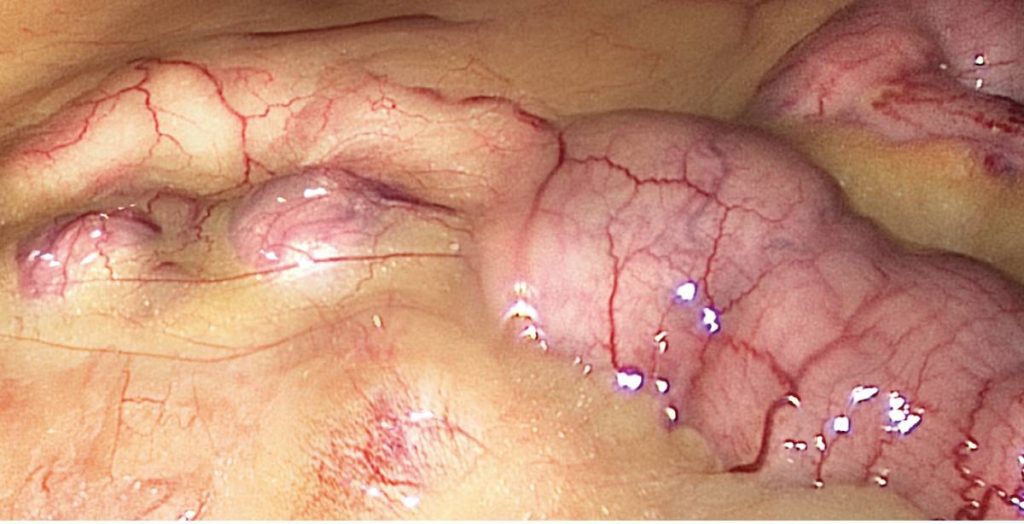
These are arguably separate theories, but as they are interconnected and for the sake of brevity, I’m bundling them together.
Leptin, a hormone produced by fat cells is released whenever we gain weight (25).
Leptin is like the little brother telling the big brother to get off him whenever he gets sat on.
The fat cells tell the brain to eat less because they are growing and the body now has stored energy it needs to use.
Insulin is the hormone responsible for regulating blood sugar by storing glucose away in the tissues. Some people believe excess insulin production from high carbohydrate diets is the driver of overweight and obesity (26). I highly recommend ‘Why we get fat’ by Gary Taubes.
The theory goes, when somebody consumes too many carbohydrate dense ‘high reward’ junk foods, increased insulin levels, lead to increased amounts of fat accumulation.
When this starts occurring too often, the brain becomes de-sensitized to leptin and the brain’s ‘set point’ increases and we become leptin resistant, leading to excessive fat gain and obesity.
Furthermore, this process is compounded by ‘lipotoxicity’ or elevated levels of fats in the blood. When we have chronically high levels of insulin, this inhibits lipolysis (fat burning) which increases circulating fatty acids.
Over time, these fats are shunted into muscles and organs (where they shouldn’t be) producing compounds like ceramides and DAG’s, which irritate your system creating inflammation and perpetuate leptin and insulin resistance (27).
What does all this mean in practice?
Like many things in life, the truth probably lies somewhere in the middle and the process of overweight or obesity involves elements of each theory.
If you remember one thing from this article: Too many ‘junk food’ carbohydrates lead to weight gain and if your brain’s set point is too high you will be fighting a losing battle. No matter how hard you diet and exercise, you will eventually put it back on.
Most importantly, it’s about finding a consistent and sustainable approach that works for you.
Make sure you rule out any medical conditions
Before embarking on any weight loss programme, make sure you speak to your doctor who can rule out any underlying problems for you.
Overweight or obesity can be caused by some medical conditions such as
Thyroid disease, PCOS, Cushing’s disease and rarer conditions such as Prader-Willi Syndrome and brain tumours. Steroid and insulin therapies can also cause weight gain.
We can also temporarily put on weight during times of stress or menstruation.
My five top tips for safe and sustainable weight loss
1. Cut ‘The Junk’
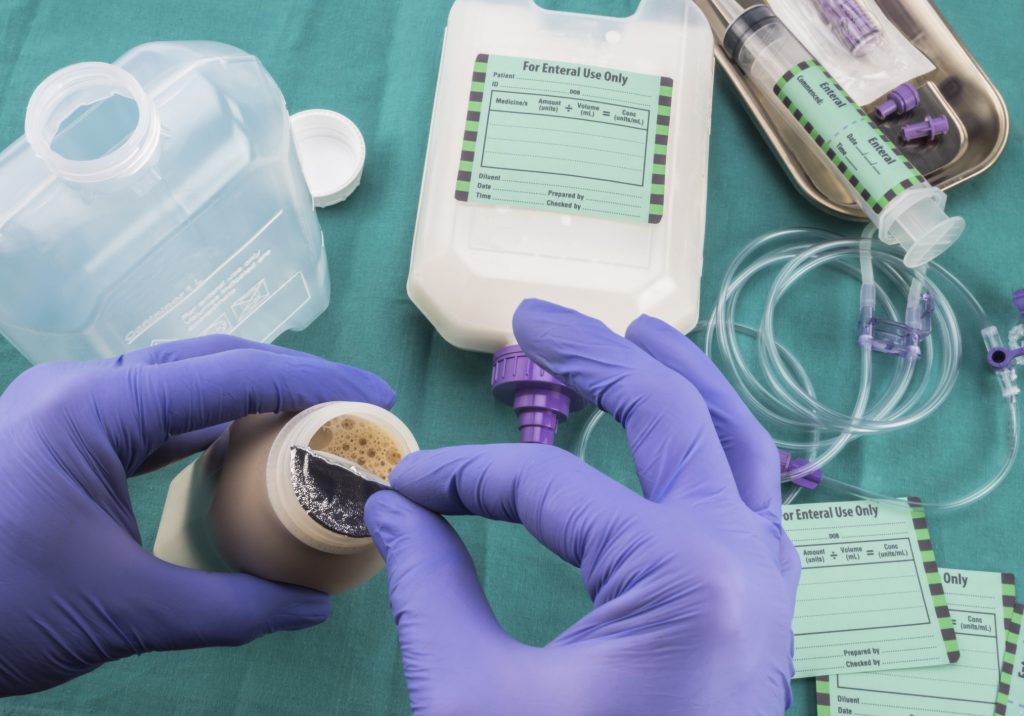
As I mentioned above, it’s possible that highly processed junk foods such as candy bars, cereals and snacks maybe contributing to a malfunction of the ‘adipostat’ (fat thermostat) and your brain’s ability to regulate weight.
Remember, food companies like Mars, Nestle and Cadbury’s spend millions of pounds per year on food scientists who are paid to make their foods as delicious and moreish as possible.
When you think of your favourite confectionary you might imagine chefs whisking concoctions of silky milk chocolate in copper pots. The reality is more akin to a pharmaceutical laboratory than a five star kitchen let me tell you.
These products are ‘engineered’ rather than ‘created’ by food scientists with lab coats and PhD’s using excel spreadsheets to tweak every variable imaginable until you are craving more and more (28).
By simply replacing these foods with whole food equivalents, you could be helping to re-set your brain’s ‘adipostat’.
So instead of reaching for a Snickers bar, reach for some dark chocolate. Instead of grabbing a bag of crisps, reach for some nuts. Instead of reaching for a Coke, reach for a homemade smoothie.
This is no easy feat, and I would advise working with a health coach or somebody who can help you gradually phase these foods out.
Remember: Take care of the quality and the quantity takes care of itself.
2. Consider a low-carb approach
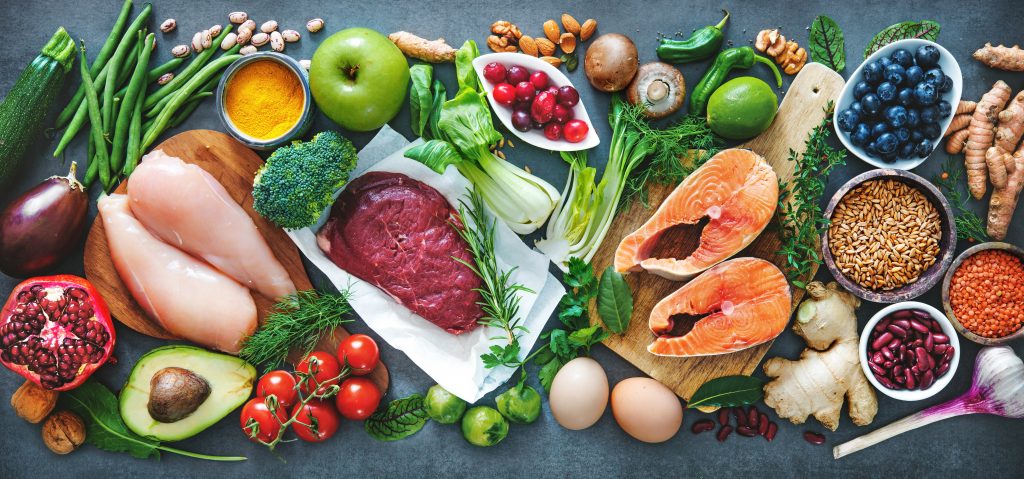
If the phrase ‘low-carb’ scares you, fear not. It does not involve punishment or starvation.
As I previously mentioned, carbohydrates are not all equal. Eat 100 grams of Cocoa pops and 100 grams of sweet potato, and you’ll notice a difference. You will feel fuller for longer with the sweet potatoes.
By simply replacing ‘crap’ junk foods with whole food carbohydrates like sweet potatoes, carrots, parsnips and even white potato you are inadvertently reducing your calorie intake and re-setting your ‘adipostat’ helping your body to lose weight.
When eaten with green leafy vegetables, fat and protein, you’ll feel nourished and satisfied.
Don’t believe me? There are a plethora of primitive cultures such as the Kitavans who obtain nearly 70% of calories from whole food carbohydrates such as yam, sweet Potato and cassava, yet are lean and relatively free of heart disease and diabetes (29, 30).
If you’re Type 2 diabetic, there is also clear consistent evidence that a low-carbohydrate diet can reduce weight and improve or even reverse type 2 diabetes obesity (31, 32, 33, 34, 35, 36, 37). GP David Unwin has popularised this approach in his practice with great results (38, 39, 40).
Try to avoid the junky carbohydrates (typically anything that comes in a bag or box) and replace with whole foods. If you want to ‘go for it’ try reducing your carbohydrates intake to around 30% of calories (30% of your plate should contain carbohydrates).
*There is a caveat which I will explain at the bottom*
By reducing your carbohydrates, you are going to reduce the work of insulin switching from ‘carb burning’ to ‘fat burning’.
3. Shorten Your Eating Window
This is known as time restricted feeding, and is a less aggressive form of intermittent fasting. The goal is to eat breakfast later and have dinner earlier (12pm to 7pm or 7am to 3pm).
Depending on your health status, you can enjoy as many (nutrient dense) meals as you like or you can only have two.
It’s a very individualised approach.
The idea behind it, is to allow your body to switch from ‘burning’ glucose to ‘burning’ fat whilst naturally restricting calories, minimising ‘high reward’ foods and lowering insulin levels.
The nascent research is encouraging with observed improvements in weight loss, blood pressure and diabetes markers (48, 49, 50, 51).
Interestingly, men with pre-diabetes were found to have improved insulin sensitivity, blood pressure and oxidative stress when eating between 7am and 3pm (51).
It’s important to note marginal benefit is observed when people continue to eat their regular diet. The ‘magic happens’ when you replace the junk with nutrient dense nourishment (53, 54).
If you lead a busy life it’s very easy to implement as many people naturally restrict their eating window. Ever wake up not feeling hungry? Your body is telling you to restrict feeding while it repairs.
Note: This should be done under strict supervision especially if you take medications. Speak to your doctor before trying this. If you struggle with thyroid or adrenal issues, this is also not a good idea.
4. Address The Root Cause
In my experience people who want to lose weight tend to have tunnel vision and can only focus on fat loss. Nothing else.
Yet, I have seldom seen an overweight person who doesn’t have other health complaints such as fatigue, hormonal issues, digestive issues or diabetes.
My golden rule for healthy and sustainable weight loss is ‘focus on making your body healthier and the weight will take care of itself’.
This is counterintuitive for many but it is the only way to shift your mindset, to allow yourself to implement the right advice for you.
Remember, excess weight in itself is not a bad thing. There are many overweight and obese people with no diabetes or heart disease. Overweight is just a risk factor because it places extra stress on your body.
The goal is to make your body healthier so you can do whatever you want in life and continue to do whatever you want for the rest of your life.
5. Accepting Weight loss is journey, not a destination

If you sit on the ‘lighter’ end of the weight spectrum, this concept may not apply to you.
In my experience, consistent and sustainable weight loss and optimal health requires a holistic approach. As you have seen, obesity involves multiple factors.
Addressing these factors, involves ‘diving deep’ into yourself to address the factors that drive your behaviours.
As Paul McKenna emphasises in his book ‘Freedom from Emotional Eating’ “When I see an overweight person, I see stored emotion”.
To choose weight loss, is really a choice to address the psycho-spiritual aspects that led you to overweight in the first place.
You will make mistakes, and that’s ok, as long as you are striving for consistency in your approach.
Only by accepting what you are about to do is a journey, can you begin to move forward on your journey to weight loss.
Wishing you well on your path to health,
Inder

*Caveat to the Low Carb Point*
Like the good scholar I am, the opposing side of the argument must be presented and this is important. There is significant evidence that low-fat, high carbohydrate diets (some without portion control) leads to weight loss too (41, 42, 43, 44).
Even more interestingly, weight loss increases insulin sensitivity, irrespective of a low-carb or low-fat diet (45, 46).
While I don’t have all the explanations an important concept to understand is, carbohydrates can only be stored in the presence of dietary fat (47). In other words, you need plenty of dietary fat along with carbohydrates to store body fat.
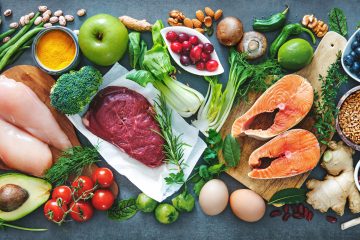
0 Comments